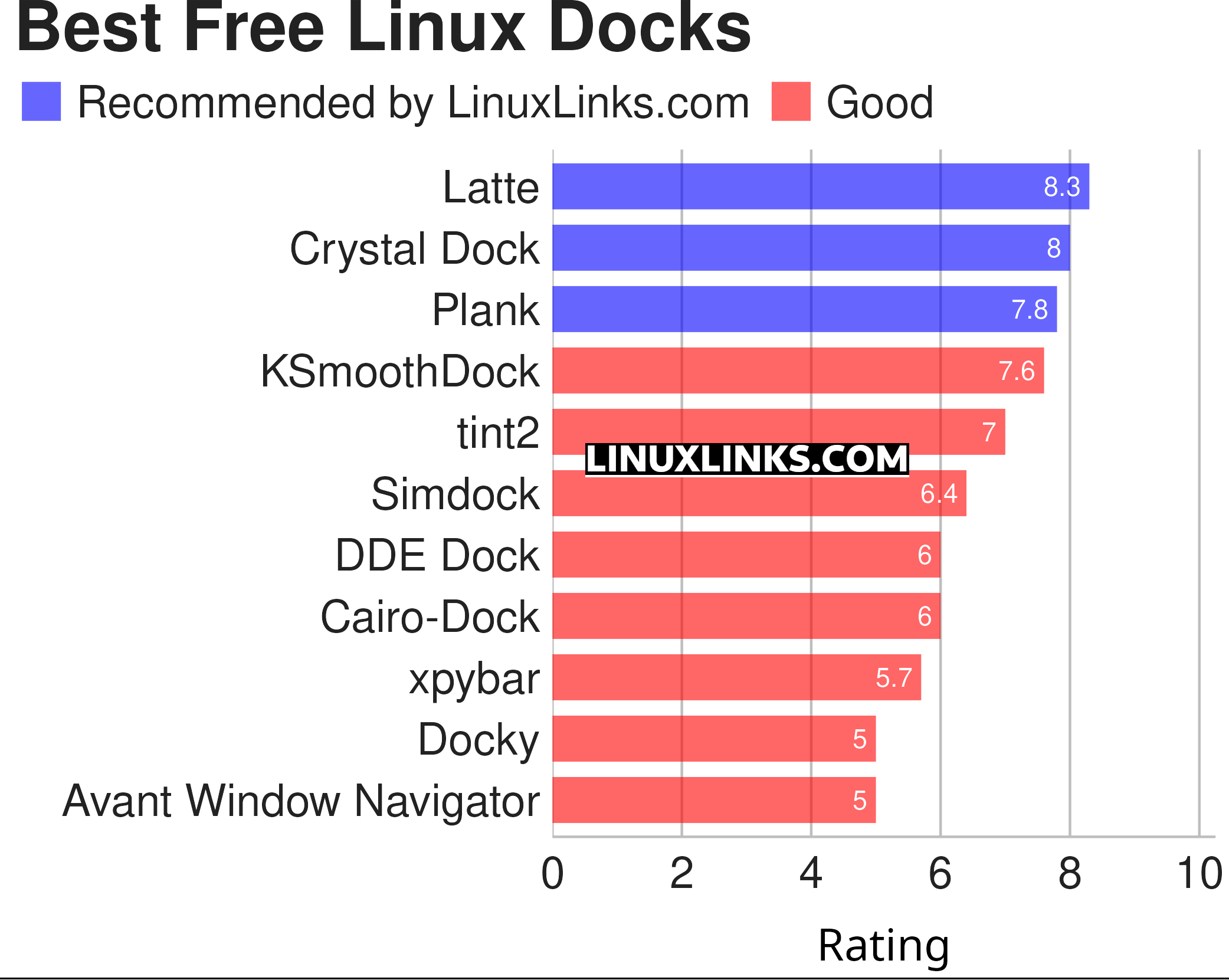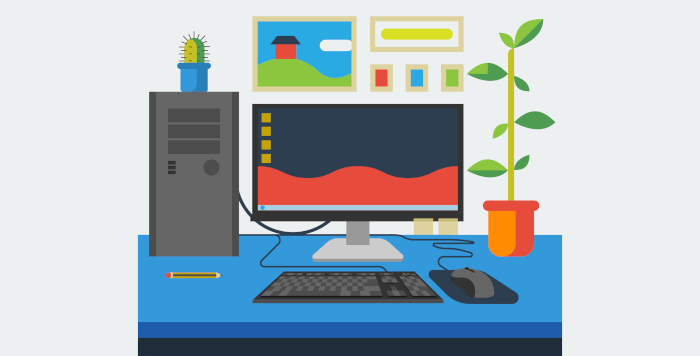A dock is a graphical user interface element that allows the user to have one-click access to frequently used applications. This type of utility also enables users to switch quickly between applications, as well as to monitor programs. This type of application is an excellent way of extending the functionality and usefulness of the desktop. In recent times, the popularity of the dock has been enhanced by the Mac OS X operating system.
The concept of the dock dates back many decades. Acorn Computer’s Arthur and NeXT’s NEXTSTEP are early examples of operating systems that implemented the dock concept.
To provide an insight into the quality of software that is available, we have compiled a list of 8 docks that genuinely add to the desktop experience. Hopefully, there will be something of interest here for the desktop user.
Linux has a good selection of docks to choose from. Here’s our rating for each of them. They are all open source goodness. We give our highest recommendation to Latte, Crystal Dock, Plank and KSmoothDock.

Click the links in the table below to learn more about each dock.
| Docks | |
|---|---|
| Latte | Based on plasma frameworks offering elegance and beauty |
| Crystal Dock | Cool desktop panel with parabolic zooming effect for KDE Plasma |
| Plank | Simple dock with basic functionality |
| KSmoothDock | Desktop panel with parabolic zooming effect for KDE Plasma 5 |
| tint2 | Simple and light open source taskbar |
| Simdock | Fast and customizable dockbar |
| DDE Dock | Dock of Deepin Desktop Environment |
| Cairo-Dock | Light and eye-candy dock to launch your programs |
| xpybar | Highly extensible minimalistic dock panel |
| Docky | Elegant, powerful, clean dock |
| Avant Window Navigator | Mac OS X like panel for GNOME |
This article has been revamped in line with our recent announcement.
 Read our complete collection of recommended free and open source software. Our curated compilation covers all categories of software. Read our complete collection of recommended free and open source software. Our curated compilation covers all categories of software. Spotted a useful open source Linux program not covered on our site? Please let us know by completing this form. The software collection forms part of our series of informative articles for Linux enthusiasts. There are hundreds of in-depth reviews, open source alternatives to proprietary software from large corporations like Google, Microsoft, Apple, Adobe, IBM, Cisco, Oracle, and Autodesk. There are also fun things to try, hardware, free programming books and tutorials, and much more. |
